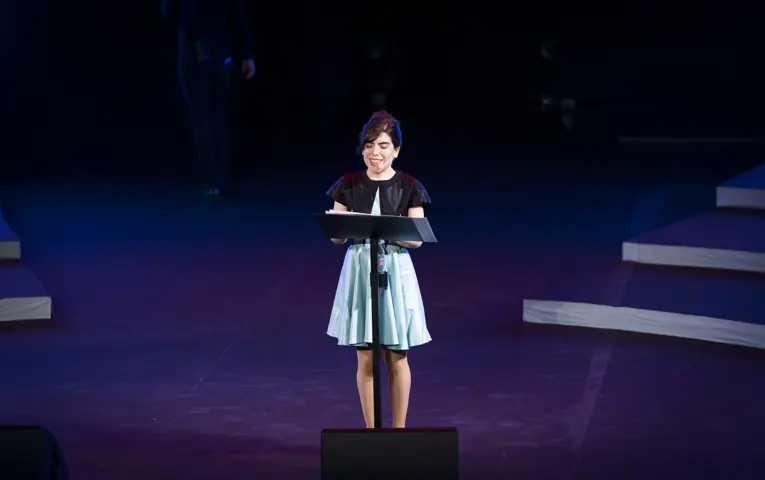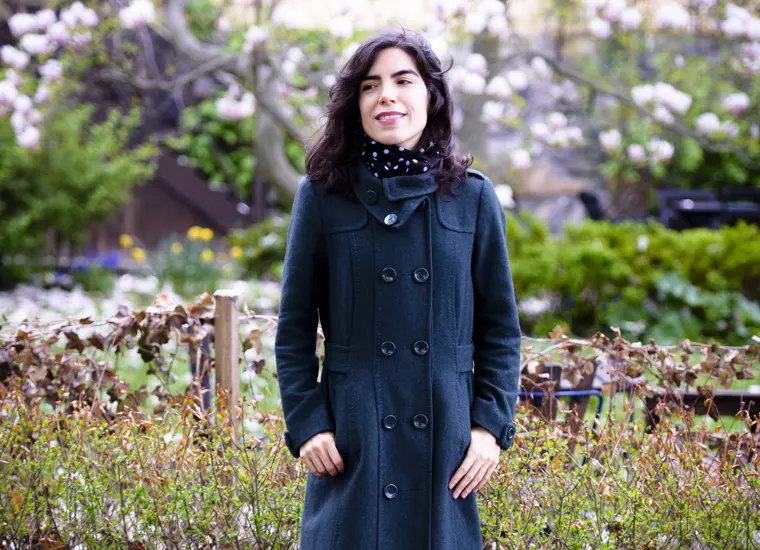
Isol's Acceptance Speech
Read Isol's acceptance speech at the 2013 Award Ceremony.
Your Royal Highness, ladies and gentlemen, dear friends (because if you love books I consider you fairly close friends of mine)
I feel utterly honoured to receive this precious gift. I want to thank all members of the Jury for giving my work such merit, even when coming from a far-off country, for making it known to others, for enjoying it!
I’m glad this award gives relevance to those who think of illustration as a rich, profound language, one with a voice of its own. In picture books we can tell many things through colours, lines and shapes, and that -in turn- allows the text to breathe with freedom. Unfortunately, as we grow up, we lose contact with the expression through pictures, whereas we all were experts on the subject when we were kids. I don’t actually think that I must put a limit to my imagination just because it’s a book for children, on the contrary! What reader could be more demanding than a child? Children have a lot of things to discover and I’d better be on their high level in order to satisfy their huge capacity for curiosity. I get my inspiration from what’s wild, from what’s ridiculous, from that independence of culture that children enjoy. They are beyond our conventions, they keep asking themselves all sorts of things. That’s why I choose them as my main characters. The artist’s and the child’s viewpoints have many aspects in common. I’ve once heard that an artist is a child that has survived.
I don’t like books that try to tell me what I have to think, and I believe it’s very disrespectful of others to lock up interpretation in just one meaning.
What’s really inspiring in books is the fact that you can discover something of your own, something very personal through a piece of work which was created by someone else. That has happened to me with the books I love the most: the ones that have shared their power with me.
This is a very emotive moment for me. Today I feel that my books have touched you, that they were loved. I feel that behind this award there is much love: love for books, for children and grown-ups, for art and life. That very love that Astrid Lindgren showed, that very courage. If we are honest, we authors expose our own skin in each work, we prepare our modest home for a party. And we open our door expecting the reader to come and visit us, and we hope they will like what we have prepared. And if we are that lucky, we will take part of a joyful relationship which can’t be predicted, which is as real as it is intangible.
But you, with this fantastic prize, you make it visible. You promote and value this unpredictable relationship so that it keeps flourishing. You state that making children books is something really worthy. So worthy that we even deserve to earn money for our work! In a world ruled by other values that define what is successful or competitive in the market, the ALMA is a strong and transcendent decision. It doesn’t seem a mere coincidence that in my language, in Spanish, ALMA means “the soul”.
The fact that I am here, living this dream that I thought so unlikely, makes me think of a song I sing sometimes. It’s called Youkali and was composed by Kurt Weill. It talks about an island at the edge of the world where our wishes come true, where lost love can be recovered, where hope and humanity dwell. The song ends by saying that Youkali is a fantasy… but those of us who love literature know that at times certain fantasies lead us to discover great realities. And books are very good ships to reach places like that island, that “holm”, which today, I think, must resemble Stockholm in the springtime.
Many thanks from my soul!

From the eye level of the child
Marisol Misenta, widely known as Isol, is an Argentinian picture book artist, cartoonist, graphic artist, author, singer and composer. Her style is expressive and at times explosive, using a sophisticated technique of double outlines and deliberate print misregistration where the lines and colours are not completely aligned.
Disover Isol